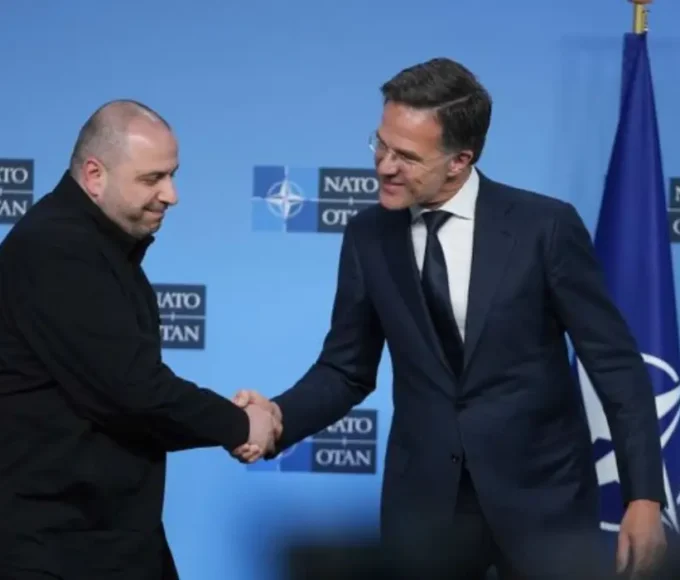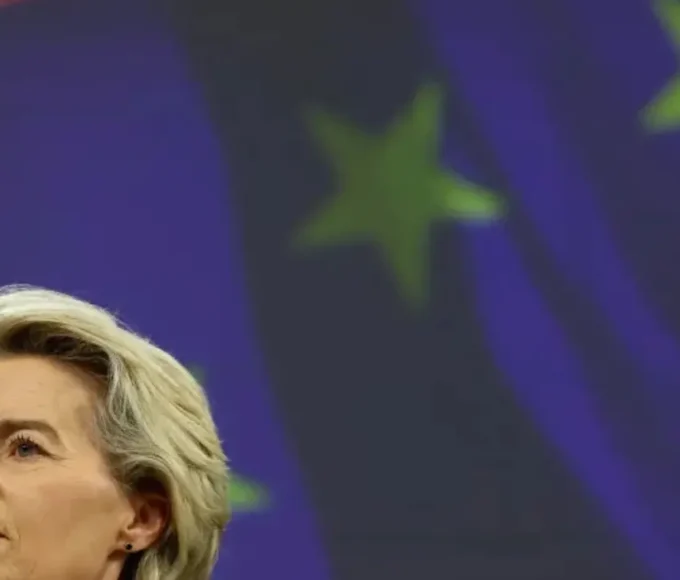During his 2023 wishes to the armed forces, Emmanuel Macron announced a budgetary effort of 400 billion euros over the period 2024-2030. At the time of the war in Ukraine and while the stocks of equipment are at their lowest, the armies (and in particular the army) had some reason to hope for a boost in arms orders “classic”. Hope showered by reality, since the big winners of the new LPM are cyber, space and overseas. If the land defense and security industry will not benefit from more orders, several avenues are available to the Élysée to maintain the competitiveness of this industry.
Boosting Defense Innovation
Transitioning an army model to high intensity requires high-tech capabilities coupled with mass production. The conflict in Ukraine is a representative case. The loss rates recorded demonstrated the need for a very large capacity thickness. With this in mind, the war confirmed that a small number of high-tech effectors would not necessarily have the advantage over a mass of more rustic equipment. The fact remains that the use of technological equipment (data links, drones, etc.) has become essential in the conduct of operations.
The appointment of Emmanuel Chiva, former director of the Defense Innovation Agency of the Ministry of the Armed Forces, as head of the DGA last year also illustrates the importance given to this dimension by Emmanuel Macron. However, the allocation of resources can sometimes leave something to be desired, as in the case of drones, where France is late while the lessons of Nagorno Karabakh and Ukraine show their determining character. Jean-Louis Thiériot, vice-president of the Defense Commission at the National Assembly, also proposes simplifying access to innovation support mechanisms and pursuing disruptive projects whose interest would not appear not immediately. A perspective that extends well beyond the industries of the sector alone, and could be integrated into the reflections carried out under the aegis of Matthieu Landon, industry and innovation adviser at the Élysée Palace to optimize synergies between start-ups and large businesses.
Protecting Businesses From Predation
In its January 2023 report, the Directorate General for Enterprise (DGE) provides an overview of the threats to French companies. Among these, a large part concerns the acquisition of companies by foreign companies (40%). As in the very recent case of Exxelia. This company manufactures complex components and precision subsystems dedicated to environments such as space, aeronautics or defence. Alstom, Latécoère and now Exxelia have in common to have valuable know-how in areas of sovereignty, and to have been bought by American companies.
Faced with this type of threat, the United States and Germany developed economic intelligence strategies fairly early on. The Committee on Foreign Investment in the United States (CFIUS) could be an example to follow in protecting our businesses. This organization, responsible for analyzing the acquisitions of sensitive US companies by foreign companies, asked for example, in 2019, the Chinese company Beijing Kunlun Tech Co Ltd. to sell Grindr[1]. He said he was concerned about the possession of a database of location, messages and HIV status of the user by a Chinese company. The latter finally agreed in 2020 to sell its stake to San Vicente Acquisition.
Such an approach implies for companies, and the administration, to be able to identify upstream the competitive attacks of different natures and in particular informational. Which, for example, does not seem to have been sufficiently taken into account when Naval Group suffered the long campaign of the Australian press which contributed to the cancellation of a historic contract of 56 billion euros for the delivery of twelve submarines. diesel-powered mariners. These misadventures could be anticipated by a risk and competition monitoring strategy that takes into account the reality of competitive confrontation, even between geopolitical allies.
Repatriate Industries
For the Minister of the Armed Forces, the objective is clear, “I have no mood: I want a relocation agenda”. The slowdown in world trade during the Covid crisis has highlighted our multiple dependencies, affecting in particular elements of weapon systems in service in our armies. They were produced outside the national territory. “If we are on French sovereignty, we cannot understand that a certain number of parts are produced abroad, sometimes even by potential competitors or competitors. he continued in a speech to key representatives of the Defense Industrial and Technological Base in September 2022.
Relocating is also the guarantee of preserving the know-how necessary to maintain our sovereignty. There are certain areas of the industry where the workforce has been lost, imposing a new training policy. Jean-Louis Thiériot revealed that Naval Group can no longer recruit enough welders and is therefore forced to recruit abroad. He therefore pleads for ad hoc training that responds to the difficulties of the industry.
Step up Orders
One of the lessons of the war in Ukraine is the need to have sufficient mass to respond to the attrition caused by the adversary, and to maintain a favorable balance of power in contact. Thus, last September, Russia would have exceeded the milestone of 1,200 tanks out of action, without however exhausting its capacities, far from it.
Germany and other European countries have recently recognized the importance of following this movement and rearming. However, by choosing F-35 aircraft, Belgium, Poland and more recently Germany have shown that favoring European suppliers was not obvious. Some politicians are therefore putting forward a Defense “Buy European Act” in order to strengthen “European sovereignty” by supporting EU defense solutions. However, French companies are sometimes slowed down on their own territory by complex legal tender procedures. The replacement of the Famas in favor of the HK 416 is an example: the conditions of participation being too strict, in 2015 Thales and Verney-Carron were automatically eliminated.
If it owes its export successes to its operational reputation, the Caesar itself would undoubtedly deserve support, which would perhaps have saved it from being ousted, on the wire, from the Colombian market by its Israeli competitor Elbit, who also just kicked him out of Denmark in February.
A much more substantial financial stake, since it could be counted in billions, Nexter is also still in negotiations with Qatar for the sale of the VBCI, the French infantry combat vehicle, in an improved version. In 2019, the deal seemed very close to a conclusion, but the potential customer began to take an interest in the German Boxer, for reasons apparently closer to interstate relations than military choices. A situation which once again underlines the relevance of support, if necessary from the highest level, to bring certain cases to fruition. At this stage, Bruno Le Maire, on a recent visit to the Gulf, does not seem to have moved things forward, any more than Patrick Durel, Middle East adviser to the Élysée, on the other hand involved behind the scenes in a sale of Rafale to the Emirates.
Ultimately, it is an involvement of the executive commensurate with the challenges, defined by the latter, which this industry directly linked to our sovereignty needs. The highest state authorities seem not to have taken the full measure of it yet. Thus, while the recent intervention by Roland Lescure against the relocation of Latécoère, a historic group in the French aeronautics industry, is commendable, its belated nature shows a lack of strategic anticipation in this area. While they are solemnly called upon to adapt to a new “war economy”, BITD companies now expect from the Elysée and the various supervisory ministries a concrete political commitment to meet these requirements.
This article is originally published on theatrum-belli.com








